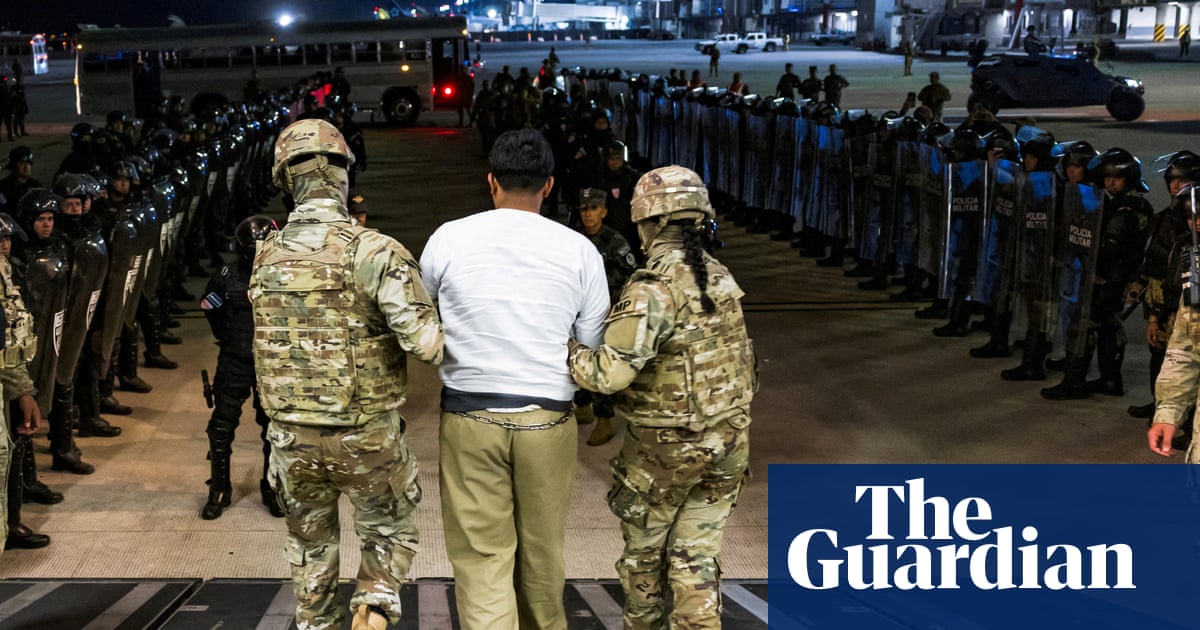The head lawyer of a human rights group representing the families of Venezuelan migrants imprisoned inEl Salvadorafter being deported from the United States has been arrested.
Ruth López, an outspoken critic of President Nayib Bukele, was detained late on Sunday under an order from the prosecutor’s office which accused her of “embezzlement” when she worked for an electoral court a decade ago, the human rights group Cristosal said in a statement.
The prosecutor’s office confirmed the arrest in a post on X.
López runs Cristosal’s anti-corruption and justice division and has been a vocal critic ofBukele’s sweeping arrestsof 85,000 mostly young men without due process under the state of exception that began in 2022.
Neither López’s family nor her legal team knew where she was taken after police removed her from her home shortly before midnight on Sunday.
“The authorities’ refusal to disclose her location or to allow access to her legal representatives is a blatant violation of due process, the right to legal defence and international standards of judicial protection,” Cristosal saidin a statement.
The arrest is part of an accelerating government crackdown on civil society and the free press as Bukele is apparently emboldened by his close relationship to the Trump administration, which is payingEl Salvadorto hold deported migrants in its prison system.
Earlier this month, seven journalists from the investigative news outlet El Faro, who hadexposed details of Bukele’s alleged dealswith the country’s gangs had to leave the country after they were tipped off that the government was preparingarrest warrantsfor them.
Many other journalists and activists had already fled. In 2023, El Faro moved its business and legal operations to Costa Rica.
Last week, after protesters gathered outside Bukele’s house, he accused NGOs of “manipulating” them and proposed a bill to tax 30% of all contributions to NGOs, echoing a law passed by Nicaragua’s autocratic government to silence its critics.
Shortly after López’s arrest, Andrés Guzmán, Bukele’s presidential commissioner for human rights and freedom of expression,announced his resignation, without giving a reason.
In astatement, international organisations said they were “deeply concerned at the increasingly pervasive environment of fear that threatens freedoms in the country” and called on “US policymakers and the diplomatic community at large to urge President Bukele to cease all attacks against human rights defenders”.
